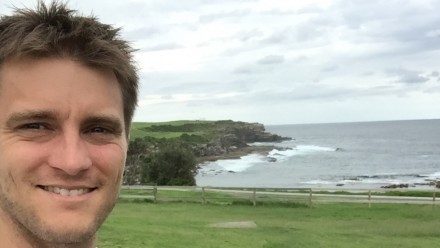Dan Noble
Metabolic processes are an essential and universal feature of life; they provide all the available energy organisms have to invest in growth, reproduction and survival. It therefore comes as no surprise that understanding the factors affecting energy production is of major interest to biologists – energetic costs and gains form the foundation of theory across a diversity of research fields, from sexual selection to behavioural, population and community ecology. Rates of energy turnover and investment by individuals provide powerful explanations for diverse biological patterns including why larger fish are important for population sustainability, patterns of ageing and why animals behave and look so different.
My research group explores how early developmental experiences impact physiology and metabolic function using targeted experimental manipulations of early life stages in ectotherms combined with large-scale meta-analytic and comparative approaches. We explore how physiological changes brought about by developmental responses cascade to affect life-history and fitness – insights that are critical to ascertain the long-term consequences of such changes. My team is currently exploring how thermal and resource environment interact to impact metabolism, and subsequently life-history, using a few widespread model lizards species that vary in ecology. We are using integrative, interdisciplinary tools to elucidate answers to proximate and ultimate questions in this area.
What I enjoy most from teaching and research is working on difficult problems from new perspectives with a team of collaborators that have unique skills and insights. I strongly believe that working together across disciplinary boundaries leads to innovative, high-impact research and training. It constantly amazes me just how much more effective learning is when working with a team of people discussing and working towards a common problem. I think we are in an exciting period of time where combing tools across disciplines will really be able to help us understand very complex biological phenomena that I hope will lead to more powerful predictive frameworks.
I think one of the major challenges in my field is a lack of integrative, longitudinal studies. Much of the current work being done is piecemeal, making it really hard to understand how developmental responses orchestrate changes to physiology that subsequently affect life-history. The reason for this is that different aspects of physiology can trade-off in important ways, and ignoring key players in physiological processes, and how they are also shaped by more immediate responses to the environment, makes it difficult to understand any resulting phenotypic consequences. Of course, we can’t measure everything. As such, we need to also develop new tools to circumvent the high-dimensionality of experiments and new ways to efficiently measure (non-invasively) aspects of organismal physiology. Getting this balance right will allow for some exciting new questions to be tackled – propelling our understanding of the role developmental environments play in orchestrating life-long changes to physiology and life-history.








